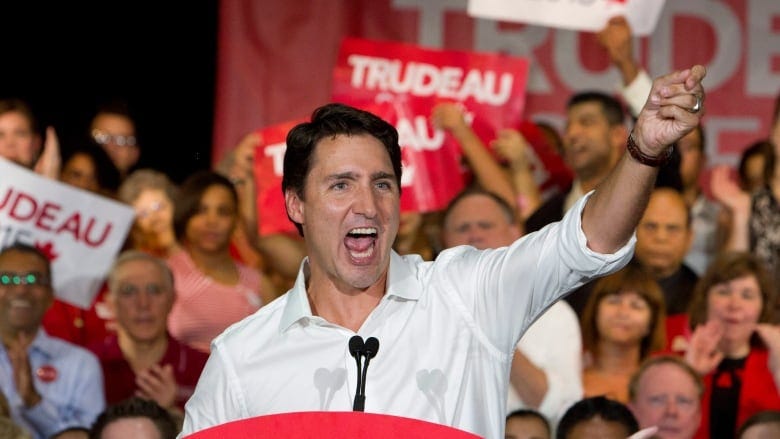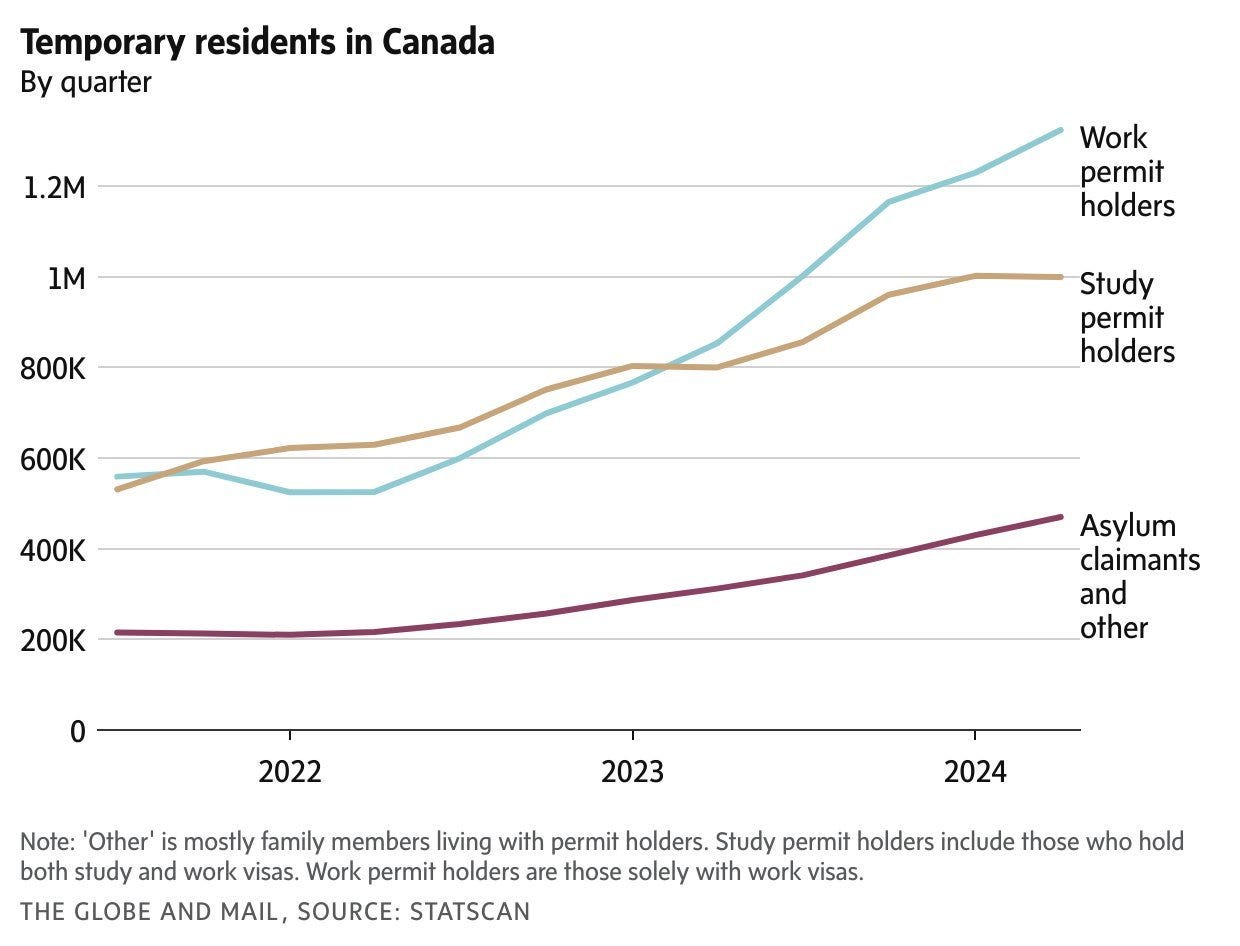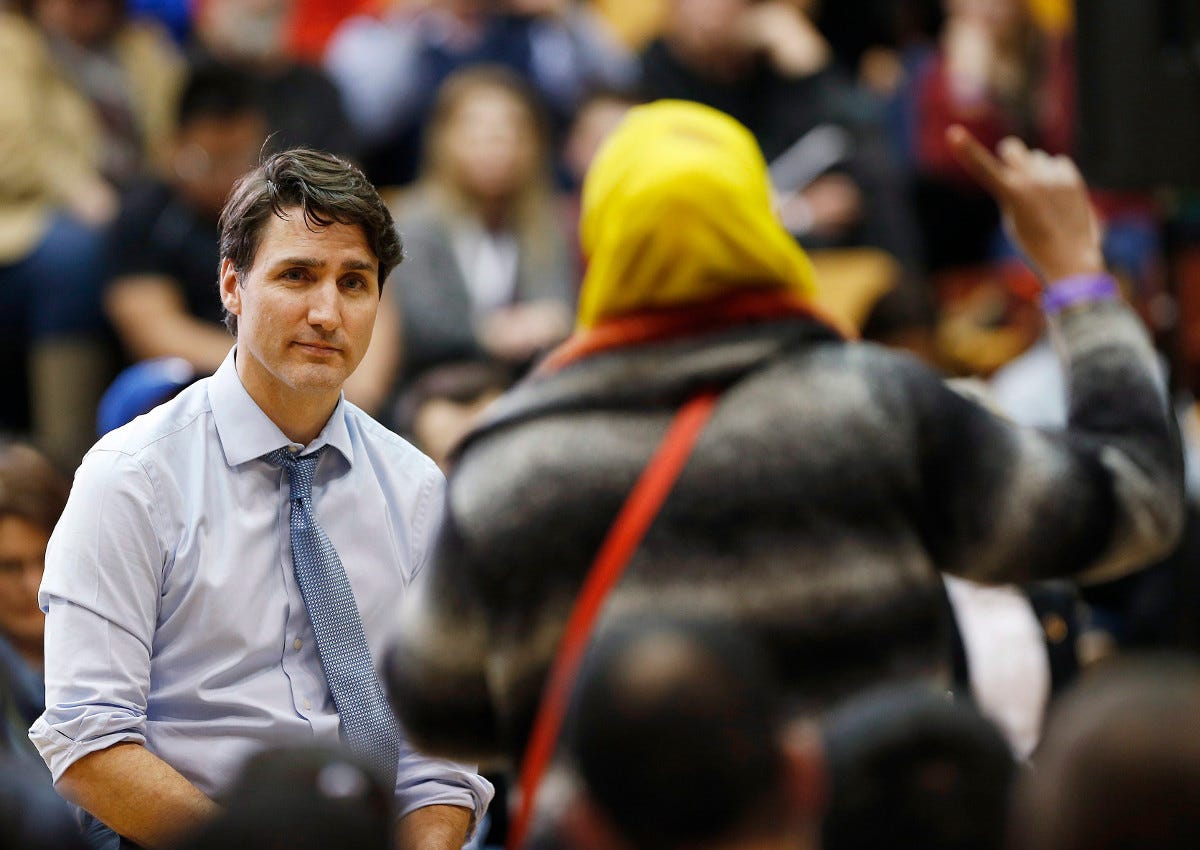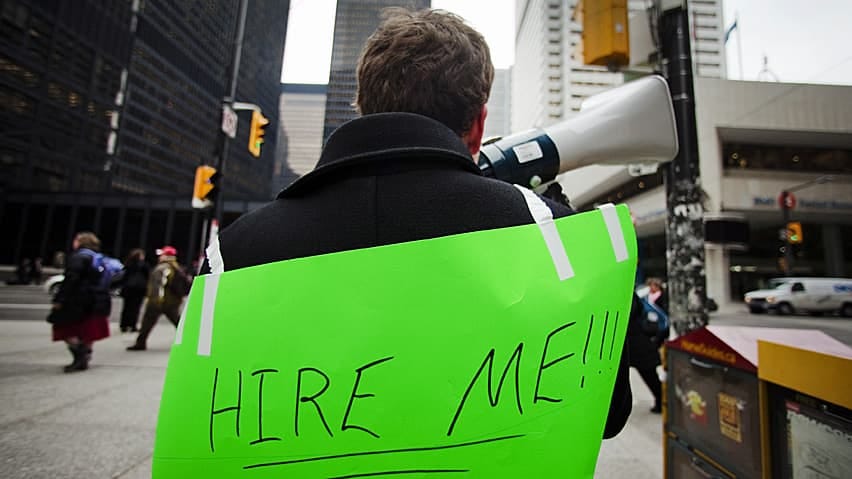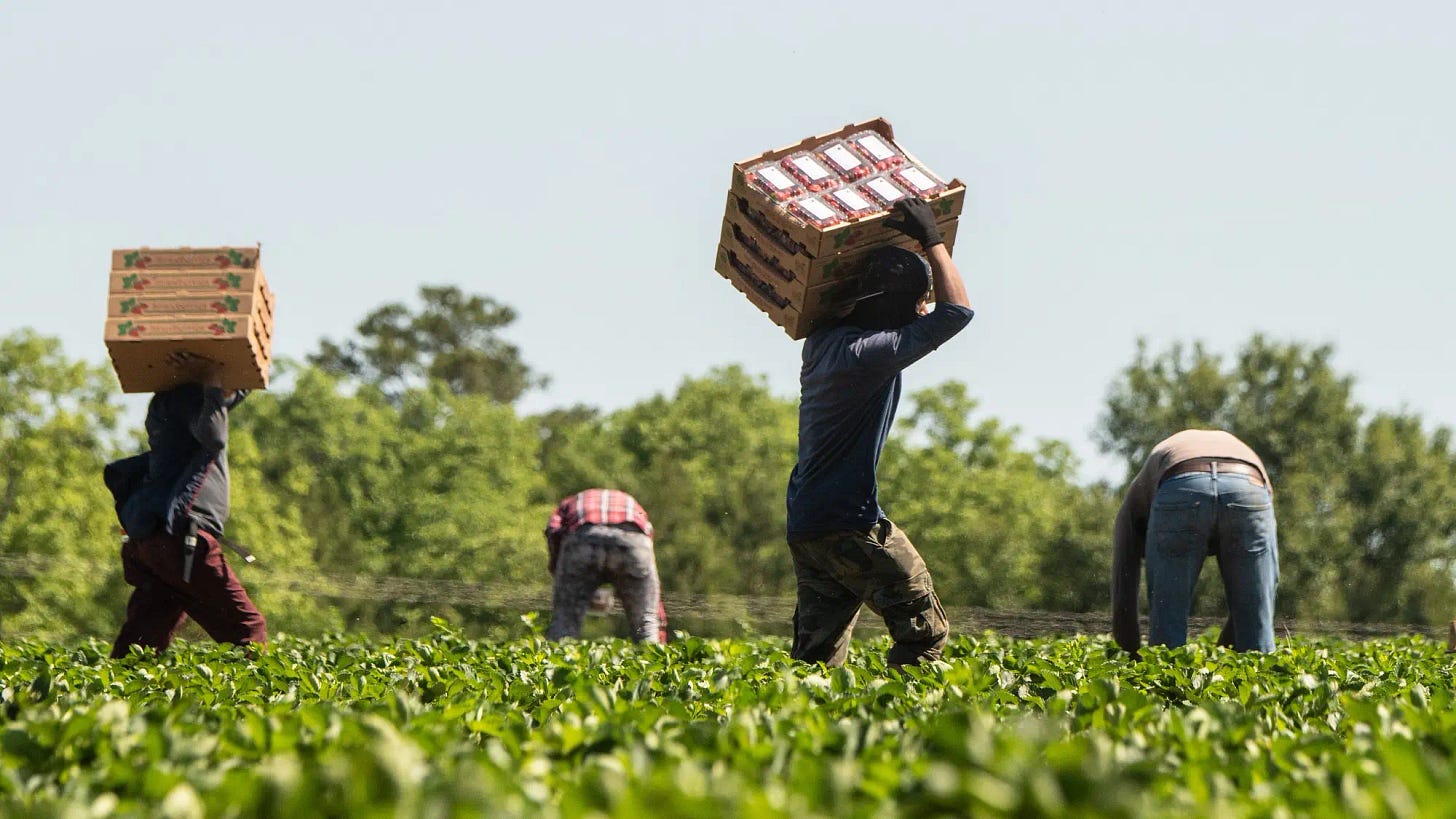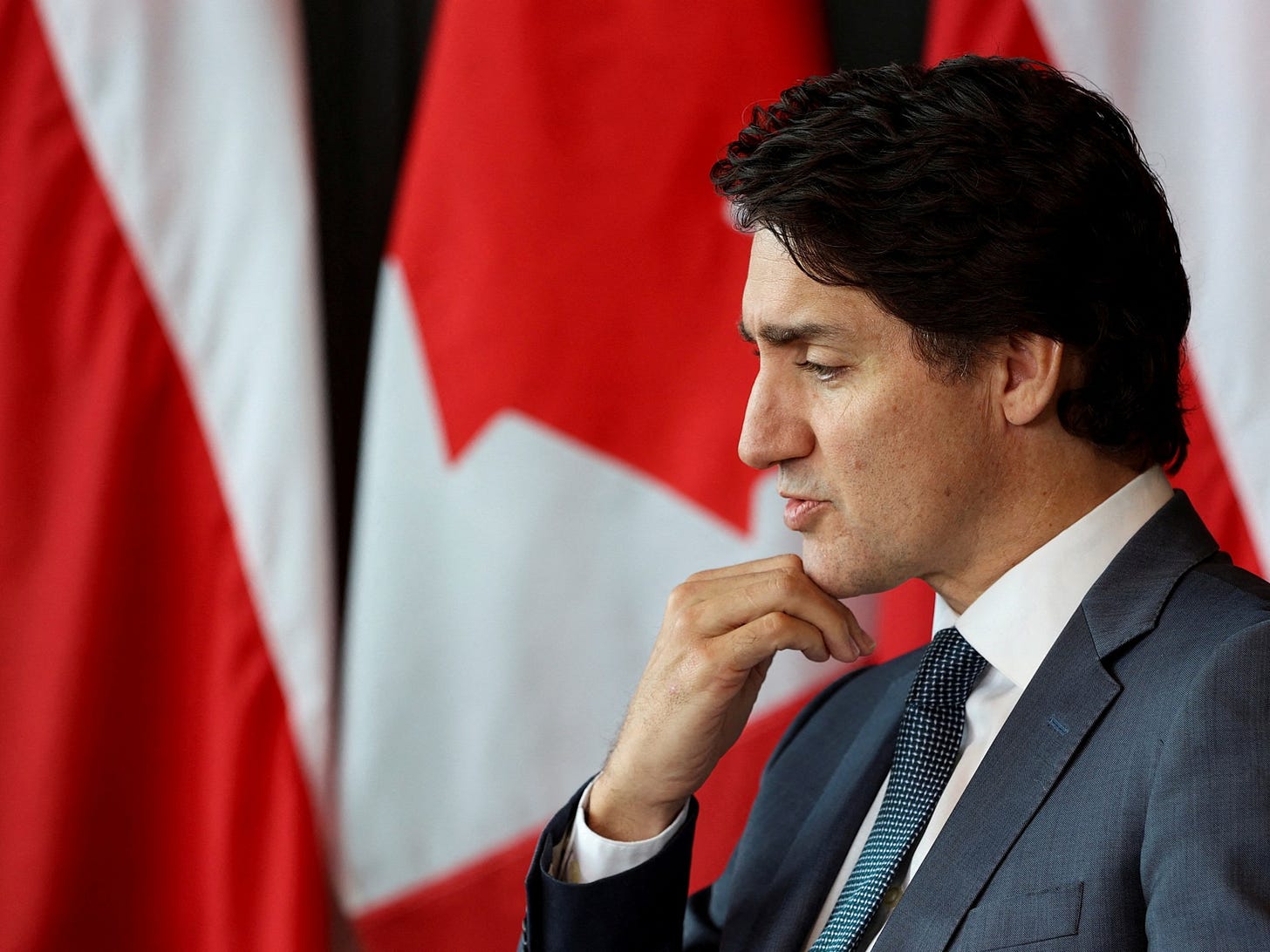The Dark Legacy of Trudeau’s Temporary Foreign Worker Program
Canada’s Temporary Foreign Worker Program was meant to be a last resort, but under Trudeau, it’s become a tool for exploitation. The economic and social consequences are staggering.
From Promises to Deception
As Canada nears a decade of Justin Trudeau's leadership, it’s hard to ignore the sweeping changes that have reshaped the nation. Among the most concerning shifts is the Trudeau government's betrayal of its initial stance on foreign workers—a betrayal that directly opposes the promises made during Trudeau's rise to power.
In 2014, Trudeau was campaigning to become the next Prime Minister of Canada. As part of his campaign, he published articles in what are now his captured media outlets. Let’s be honest: these articles were likely crafted by a freshly graduated political-science major, given Trudeau’s well-documented lack of anything resembling a robust intellect.
In an article titled "How to Fix the Broken Temporary Foreign Worker Program," Trudeau criticized Harper's Conservative Party, accusing them of transforming the Temporary Foreign Worker Program (TFWP) into a vehicle for exploitation. He declared, “It is wrong for Canada to follow the path of countries who exploit larger numbers of guest workers, who have no realistic prospect of citizenship. It is bad for our economy in that it depresses wages for all Canadians, but it’s even worse for our country.”
Trudeau then outlined a five-point plan to address the so-called "foreign worker problem":
Dramatically scale back Foreign Worker numbers over time.
Refocus on permanent immigration, not temporary.
Create transparency and accountability in the program while tightening the approvals process.
Require employers to demonstrate clear efforts to fill job vacancies with Canadian workers, particularly young Canadians.
Tighten the Labour Market Opinion approval process to ensure only businesses with legitimate needs can access the program.
Given the context of Canada at the time, Trudeau’s proposed plan appeared rational. One might have expected the state of Canada’s Temporary Foreign Worker Program to have improved under his leadership. But that expectation would be sorely misplaced.
Trudeau’s Betrayal
To understand Trudeau, one must first grasp his adeptness at Orwellian doublespeak. He promotes inclusion, yet reported hate crimes have increased by 154% under his watch. He champions diversity, but only if it aligns with his narrow ideology, punishing those who dare to think differently. And while he once campaigned on limiting temporary foreign workers, his actions once in power have opened the floodgates.
Within two weeks of the Liberals and NDP forming their coalition, Trudeau’s now majority federal government announced the largest deregulation of the Temporary Foreign Worker Program in Canadian history.
The federal government removed the rule that allowed employers to bring in workers for low-wage occupations only if the local unemployment rate was less than six percent. They also raised the allowable percentage of a workforce that could be composed of low-wage temporary foreign workers from 10 percent to 20 percent, with certain sectors like accommodation and food services seeing this cap increased to 30 percent.
What was once intended as a last-resort measure for employers became an employment strategy under Liberal rule. The growth of the TFWP under Trudeau is staggering. In 2021, there were nearly 1 million temporary residents in Canada, including foreign workers, international students, and asylum seekers. By April 2024, that number had ballooned to 2.8 million, representing 6.8% of the total population.
In 2022 alone, approvals for the low-wage program more than doubled, jumping from an estimated 30,000 to over 80,000. When considering all positions and streams approved, the number of temporary foreign workers rose to 227,000—a 52 percent increase.
If there were an award for exploiting this program, Tim Hortons would be the undisputed champion. A Bloomberg report found that Tim Hortons franchisees in Ontario hired 1110% more foreign workers in 2023 than in 2019.
Pouring Gasoline on the Fire
Earlier this year, Trudeau’s government proposed further amendments to the immigration and refugee protection regulations—amendments that have far-reaching implications for Canada’s labor market and society.
“The proposed amendments would include the introduction of a new permanent economic class for workers with experience in Training, Education, Experience and responsibilities occupations (TEER) 4 and 5. The initiative would support the modernization of the economic immigration system by expanding the selection of permanent residents to candidates with a more diverse range of skills and experience.” (Emphasis added)
Let’s cut through the bureaucratic jargon. The Liberals' so-called solution to the unsustainable overflow of foreign workers flooding into Canada is to expand permanent residency options for individuals with "TEER 4 and 5" experience. But what exactly does this "experience" entail? In reality, it includes nothing more than the completion of secondary school, a few weeks of on-the-job training, or—bafflingly—no experience at all. In true Orwellian doublespeak, TEER 5 "experience" is defined as a "short work demonstration and no formal educational requirements."
So, while Trudeau once wielded the Temporary Foreign Worker Program as a weapon against the Conservative government, he has now effectively razed the entire house after decrying a mere crack in the drywall. His reckless amendments have not only undermined the integrity of Canada's immigration system but have also set the stage for disastrous economic consequences.
Trudeau’s approach is nothing short of a betrayal of the principles he once claimed to champion. Instead of protecting Canadian workers and ensuring a fair labor market, he has chosen to prioritize political expediency over the nation’s long-term well-being. This policy shift opens the door for an influx of low-skilled workers to settle permanently in Canada, further depressing wages, and exacerbating the very issues Trudeau once promised to resolve.
The consequences of this reckless move are not just theoretical—they are already unfolding. With the bar lowered for permanent residency, Canada risks becoming a magnet for low-skilled labor, creating a workforce that is less competitive and more reliant on government support. The long-term impact on the economy, social services, and the job market for Canadians could be catastrophic.
The Economic Fallout
The most immediate and devastating consequence of Trudeau’s reckless deregulation is the soaring rate of youth unemployment. Two years ago, the jobless rate for Canadians aged 15 to 24 was around 9%. Today, it stands at a staggering 14.2%. For younger immigrants who arrived within the last five years, the unemployment rate is an alarming 23%.
The food and retail industries, historically staffed by young Canadians, have seen a massive influx of temporary foreign workers. Approvals for TFWs in these sectors exploded by 211% between 2019 and 2023. The labor market in major cities is hardly short of young and available workers—yet businesses are turning to temporary residents to suppress wages and cut costs.
Consider Toronto: as of July, there were 120,000 unemployed people aged 15 to 24, an increase of 50% in just two years, according to Statistics Canada. Despite this, employers are incentivized to hire foreign workers who are more desperate and, therefore, willing to work harder for less. Christopher Worswick, an economist at Carleton University, has documented how this program artificially keeps wages low, as labor shortages—typically addressed through wage increases—are instead being filled by an ever-growing pool of foreign workers.
This creates a double burden on young Canadians: not only are their job prospects diminished, but even when they do find work, their wages are lower than they should be. The impact on Generation Z is particularly severe.
Gen Z, already hampered by social and attention problems due to growing up with addictive devices, and isolated through their formative years by online learning during the pandemic, now face a drained pool of employment opportunities. This lack of opportunity further stunts their maturity and development, exacerbating the generational divide and threatening the very fabric of our society.
A Nation of Modern Slavery
The consequences of Trudeau’s policies extend beyond economic malaise. Canada is now being labeled a "breeding ground for contemporary slavery" by the United Nations. A report by UN Special Rapporteur Tomoya Obokata reveals that employers in Canada are exploiting foreign workers in ways that would be unthinkable with Canadian employees.
Temporary residents, who are only allowed to stay in Canada as long as they remain employed by the company that hired them before their arrival, are often too fearful to report exploitative working conditions, dreading deportation if they lose their jobs. There are numerous reports, both on social media and in the UN's findings, of foreign workers being coerced into returning a portion of their wages in exchange for sponsorship, subjected to wage theft, abuse, and hazardous working conditions, and trapped in debt bondage to third-party recruiters.
Even in cases where foreign workers are not directly abused, they are still exploited. Many incur significant debts to come to Canada, only to work off those debts and be sent back to their country of origin. It’s hard not to view the situation as a modernization of slavery, at the very least indentured servitude. While this isn’t the story for all foreign workers, it is for many.
The Cost of Trudeau’s Betrayal
Justin Trudeau’s handling of the Temporary Foreign Worker Program exemplifies his broader failure as a leader. What began as a promise to protect Canadian workers and uphold the dignity of labor has devolved into a system that undermines the Canadian workforce, exploits vulnerable foreign workers, and pushes the nation towards an economic and social crisis.
This is not just a matter of poor policy—it's a betrayal of the very principles Trudeau claimed to uphold. As Canada grapples with rising unemployment, wage suppression, and the specter of modern slavery, it becomes painfully clear that Trudeau’s legacy will be one of broken promises and profound national harm.



